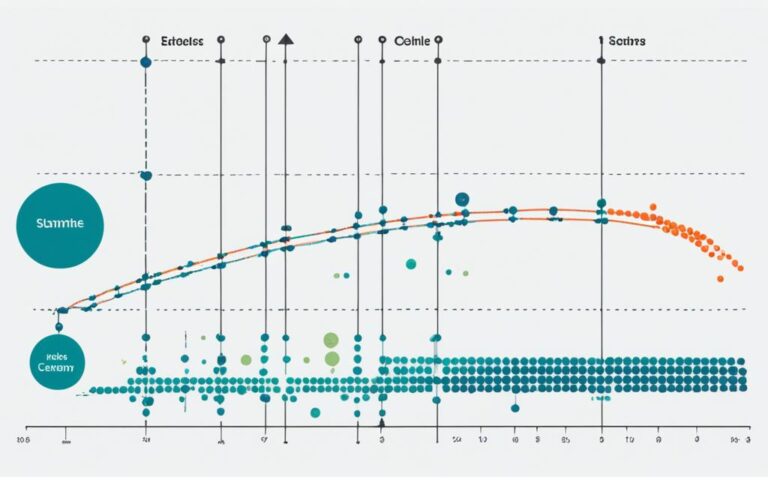The Debate Over Data Privacy: Oppugning Collection Practices
Welcome to our thought-provoking discussion on the contentious issue of data privacy in the software industry. In an era where personal information is increasingly collected and utilized, concerns surrounding data privacy and collection practices have ignited a fiery debate.
At the heart of this debate is the question of balancing the benefits of data collection with the protection of individuals’ privacy rights. Critics argue that current collection practices infringe upon individuals’ rights, and the potential misuse of personal information raises valid concerns.
As we delve into the intricacies of data privacy and collection practices, it is important to keep in mind the gravity of the issue and the need to find common ground. Let us explore the impact of data collection on privacy rights, analyzing the potential consequences and implications for individuals and society as a whole.
Together, we will navigate through the complexities of this ongoing debate and broach the topic with a blend of intellectual curiosity and wittiness. So join us as we unravel the intricacies and uncover the nuances of data privacy and collection practices in the software industry.
The Impact of Data Collection on Privacy Rights
When it comes to data collection, privacy rights are a highly debated topic. Numerous sources have shed light on the potential consequences of unrestricted data collection on individuals’ privacy. One area of scrutiny in this regard is the Digital Millennium Copyright Act (DMCA), which has faced criticism for its broad scope and its potential to enable copyright holders to exert control over access to their works.
“The DMCA goes too far in granting rights to copyright holders and restricts others from creating their own works,” argue the critics.
The DMCA’s constitutionality has been questioned on several fronts. First, some have raised concerns about its compatibility with the Copyright Clause, which grants Congress the power to promote the progress of science and useful arts by securing exclusive rights to authors. Critics argue that the DMCA’s provisions may hinder rather than encourage creativity and innovation. Additionally, the DMCA has faced challenges under the Commerce Clause, which empowers Congress to regulate commerce among states, as well as under the treaty power.
The DMCA and its Burden on Privacy
The DMCA has been accused of disproportionately favoring copyright holders at the expense of privacy rights. While copyright protection is essential, critics argue that the act’s provisions grant copyright holders excessive control and restrict others’ ability to create their own works. This imbalance has raised concerns about the broader implications of data collection practices when it comes to privacy.
To better understand this issue, let’s explore the potential consequences of unchecked data collection:
- Increased surveillance: Excessive data collection can lead to invasive surveillance practices, infringing on individuals’ right to privacy.
- Data breaches: Large-scale data collection puts individuals’ personal information at risk of being compromised in the event of a data breach.
- Targeted advertising: Extensive data collection allows companies to target individuals with personalized advertisements, raising concerns about privacy invasion and manipulation.
Data Collection vs. Privacy Protection: Finding the Balance
As the discussions around data collection and privacy rights continue, striking a balance between the two becomes crucial. It is essential to safeguard copyright holders’ rights while also protecting individuals’ privacy. Achieving this delicate equilibrium requires a nuanced approach that considers the potential consequences of data collection practices on privacy.
Industry experts and policymakers must work together to develop regulations and policies that address these concerns and preserve the integrity of both data collection practices and privacy rights. By promoting transparent data collection practices, implementing stringent security measures, and respecting individuals’ privacy rights, it is possible to strike a balance that maintains the progress of technology while ensuring the protection of personal information.
Balancing Data Collection and Privacy Protection
As the debate rages on regarding data collection and privacy protection, finding the perfect equilibrium becomes crucial. It’s essential to strike a balance that safeguards the rights of copyright holders while ensuring that individuals can freely create their own works. Achieving this delicate equilibrium may be challenging, but it’s vital for upholding the integrity of data privacy and collection practices in the ever-evolving software industry.
“Finding the right balance between data collection and privacy protection is like walking a tightrope in the software industry. We must navigate the landscapes of innovation and personal rights without compromising one for the other.”
Strategies for Achieving Privacy-Preserving Data Collection
In the quest for a harmonious coexistence between data collection and privacy protection, several key strategies can be implemented:
- Transparency and Consent: Companies should prioritize clear and concise privacy policies, ensuring individuals understand the data being collected and obtain informed consent before their information is used.
- Anonymization and De-identification: To protect individuals’ privacy, data should be anonymized or de-identified wherever possible, removing personal identifiers and minimizing the risk of re-identification.
- Data Minimization: Adopting a “less is more” approach, companies should collect only the necessary data required to fulfill specific purposes, reducing the potential invasion of privacy.
- Data Security: Implement robust security measures, such as encryption and access controls, to protect collected data from unauthorized access, breaches, or misuse.
By implementing these strategies, organizations can mitigate privacy concerns while still benefiting from valuable data insights.
Achieving Balance in Practice: Case Study
To illustrate the practical application of balancing data collection and privacy protection, let’s examine the approach taken by Company XYZ, a leading software development firm.
| Data Collection | Privacy Protection |
|---|---|
| Utilizes anonymized data collection methods to preserve user privacy | Adheres to strict data protection policies compliant with industry regulations |
| Obtains informed consent from users before collecting any personal information | Implements robust encryption and secure data storage practices to prevent unauthorized access |
| Periodically reviews and updates privacy policies to reflect evolving privacy concerns | Empowers users by providing them with tools to manage their data and exercise their privacy rights |
Company XYZ’s approach demonstrates a commitment to maintaining a delicate balance between data collection for business insights and protecting the privacy rights of its users.
In conclusion, achieving a harmonious coexistence between data collection and privacy protection is a complex yet paramount objective. Through transparent practices, proper anonymization, data minimization, robust security measures, and responsible privacy policies, we can navigate the intricate path towards a future where data-driven advancements thrive while respecting individual privacy.
Conclusion
The ongoing discussion and debate surrounding data privacy in the software industry highlight the importance of considering the impact of data collection on privacy rights. It is crucial to find a balanced approach that protects the interests of both copyright holders and individuals.
The Digital Millennium Copyright Act (DMCA), while intended to increase protection, has faced constitutional challenges and raised concerns about its broad scope. This legislation has prompted questions about the extent to which copyright holders should control access to their works, potentially limiting others’ creative expression.
Moving forward, it is essential to address these concerns and develop a more comprehensive and nuanced approach to data privacy. We need to prioritize the protection of privacy rights while fostering innovation in the software industry. By striking the right balance between data collection and privacy protection, we can ensure a fair and ethical environment where both copyright holders and individuals can thrive.
FAQ
What is data privacy?
Data privacy refers to the protection of an individual’s personal information and ensuring it is not misused or accessed without consent.
Why is data privacy important in the software industry?
Data privacy is crucial in the software industry as it involves the collection and storage of sensitive personal information, such as usernames, passwords, and financial details. Protecting this information is essential to prevent misuse and maintain individuals’ privacy rights.
What are collection practices in the software industry?
Collection practices in the software industry involve the gathering of user data for various purposes, such as improving product functionality, personalizing experiences, and targeted advertising. However, concerns arise when these practices infringe on individuals’ privacy rights or lead to unauthorized access or use of personal information.
What are the potential ramifications of data collection on privacy rights?
Data collection can potentially lead to privacy breaches, identity theft, unauthorized sharing or selling of personal information, and invasion of individuals’ privacy. It is essential to have stringent privacy measures in place to mitigate these risks.
How does the Digital Millennium Copyright Act (DMCA) affect data privacy?
The DMCA has faced criticism for its broad scope, which allows copyright holders to control access to their works. While protecting copyright holders’ rights is important, it has been argued that the DMCA may restrict others from creating their own works and can potentially infringe on individuals’ rights to privacy and freedom of expression.
How can we find a balance between data collection and privacy protection in the software industry?
Striking a balance between data collection and privacy protection requires comprehensive and nuanced approaches. This can involve implementing robust data privacy policies, obtaining informed consent from individuals for data collection, providing transparency about how data is used, and ensuring strong security measures to protect personal information.










